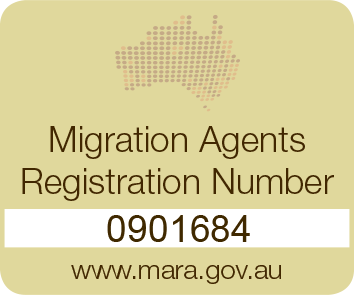You’re supposed to work from 9 am until 5 pm, Monday to Friday, but your boss says things are a bit tight at the moment. He reduces you wages by 20% but still expects you to work the same hours – and do a different job. You’re annoyed, but everyone is doing this, so it must be OK – right?
Do you know your rights at work?
You should! If you don’t, you may end up being underpaid, overworked or just downright exploited by your employer.
Your work conditions and pay must accord with workplace law applicable in Australia.
Every worker, including migrants, visa holders and international students have the same workplace rights as Australian citizens – don’t let anyone try to convince you otherwise.
Here are some basic rights that everyone should know about:
You are entitled to minimum employment standards.
Under the Fair Work Act, minimum employment standards apply to everyone working in Australia – including you. These standards include minimum pay rates, leave entitlements, maxiumum hours, redundancy etc. These are found in the National Employment Standards (NES).
Awards
The relevant industrial award also applies to you – depending upon which industry you work in. For example, there is a Fast Food Award if you work in a fast food outlet. You can find a list of awards on the Fair Work Ombudsman’s website here .
Fair Work Ombudsman’s website
And while we are the subject of the Fair Work Ombudsman’s website – it’s the place to visit if you’re not sure about your employment entitlements.
The Fair Work Ombudsman’s website even has a section for Visa Holders and Migrants.
Your Employment Contract
Every worker should be given an employment contract in writing – and even casual workers should know what their employment terms and conditions are in writing.
When you commence employment, you should be given a Fair Work Information Statement, which is available in 30 different languages. The Fair Work Information Statement outlines your minimum employment entitlements.
Know your minimum hourly rate & casual loadings
The minimum hourly rate in Australia for adult workers is AUD$19.49/hour, which means that the minimum weekly wage is AUD$740.80/week.
Casual employees are entitled to extra loadings, which make up for casual employees’ inability to claim sick leave or annual leave.
Casual workers in Australia (adults) must earn at least AUD$24.36/hr – a 25% loading compared to permanent employees.
In addition to these pay rates, penalty rates generally apply under most awards for those workers working outside normal employment hours, e.g. night shift, public holidays etc – whether you’re casual or not.
Leave entitlements
A full-time employee in Australia is entitled to 20 paid annual leave days plus 10 days of personal/carers leave per annum. These entitlements accrue annually. Casual employees are not entitled to paid annual leave.
When taking personal or carer’s leave, employees must provide their employer with evidence to support the need for the leave, e.g. a medical certificate or explanatory Statutory Declaration.
Casual workers are entitled to two days unpaid carers leave without relinquishing their employment.
Compassionate leave
A full-time employee is also entitled to compassionate leave. Compassionate leave is paid leave that an employee is entitled to when a member of the employee’s immediate family suffers death, serious injury or serious illness.
Depending upon the state or territory you are employed in, this leave is generally for two days. Casual employees are usually entitled to two days unpaid compassionate leave.
Parental leave
Parental leave is an employee’s entitlement to take leave from work to care for a new child family member.
There are two types of parental leave entitlement – paid and unpaid.
An employee may be entitled to paid parental leave (PPL) via the:
- Paid Parental Leave Scheme
- The Dad and Partner Pay scheme (DAPP)
- The employers parental leave policy, or
- Any provisions in your employment contract or in the award that applies to your occupation or place of work.
Employees may also be entitled to unpaid parental leave.
Under the National Employment Standards (NES) in the Fair Work Act, an employee is entitled to up to 12 months of unpaid parental leave, and unpaid special maternity leave. There may also be other entitlements. If more beneficial entitlements are contained within an award – the employee is entitled to the more beneficial entitlements. Find out more here.
Long Service Leave
An employee is also entitled to long service leave once they have worked for the employer for 10 years, whether full time, part time or casual. The full entitlement amount to 8.76 weeks of leave in addition to their annual entitlements.
Each state and territory have rules about long service leave entitlements, and in some states, long service leave may be claimed after a certain number of years where an employee resigns or is terminated by their employer.
Superannuation and Tax
Everyone is entitled to a 9.5% superannuation guarantee payment out of their wages, and everyone is liable to pay tax in Australia.
The entitlement to the superannuation guarantee arises where an employee is over 18 and earns over AUD$450 per month. Even if someone is under 18, they are entitled to the super guarantee if certain requirements with respect to wages are met.
COVID-19 and your employment rights – important things to know
We’ve all read stories about employers who have reduced their employees’ hours or wages during the pandemic, however in reality, this can only occur if the employee consents.
Awards have been varied to allow for two weeks unpaid pandemic leave – where you need to self-isolate if e.g. you have been in contact with an infected person. This leave entitlement also applies to casual employees.
During the pandemic, awards have also been varied to allow full time and part-time staff to take twice as much paid annual leave at half the pay.
Termination of employment.
Casual employees usually have no rights with respect to termination. With full-time and part-time employees, unless there is a solid reason for summary (instant dismissal), they must be given the appropriate notice period contained within the employment contract – generally in accordance with the relevant award.
Employers can however, make full time and part-time employees redundant, and terminate their employment that way instead.
If an employer feels the need to make employees redundant, he/she needs to check the award to find out what the employee’s entitlements are if they are made redundant, and also what the relevant notice periods are.
If an employee is made redundant, they are entitled to the notice period contained in the redundancy provisions of the award, and any other leave entitlements owing to the employee. This means redundancy pay set down in the award, plus annual leave pay – and in some states, long service leave entitlements must be paid to the redundant employee.
If you believe you have been dismissed even though you have been told you are being made redundant, you may be able to lodge an unfair dismissal claim.
Unfair dismissal
If an employee feels they have been unfairly dismissed, and application must be made to Fair Work within 21 days of the date of dismissal. This timeline cannot be extended.
Stand down provisions
What does it mean to be stood down?
It means that you still have a job but that your employer does not have to pay you – but your employer must have a good reason to stand you down, and have no useful work for you.
Whilst stood down, you still accrue annual leave and if you’re entitled to it you can claim Centrelink payments.
If you have been stood down and your employer asks you to resign – we recommend that you do not resign as to do so may cause you to lose some of your entitlements.
Change of workplace
Because of the COVID-19 JobKeeper enabling direction, your employer can change the place where you work, and can also change what you do. You may have already noticed this – e.g. bartenders serving takeaway food, table wait staff preparing food or becoming kitchen hands.
JobKeeper – general
As an employee, you cannot force your employer to apply for the JobKeeper payments.
In order to access the JobKeeper payments, the employee must also be eligible to claim. Find out if you’re eligible here.
Your employer cannot hold back payment from you or charge you any kind of “admin fee” or commission. Further, your employer must pay you the difference if your earnings are usually higher – and this is before tax.
Be aware that your employer cannot take advantage of an employee on JobKeeper – e.g. expecting you to do more if you are getting paid more than usual on JobKeeper
JobSeeker payments
These are Centrelink based payments, and you may only claim them if you are eligible. To find out if you are eligible for Centrelink, contact your nearest Centrelink office.
Early release of super
The Australian government has allowed an early release of your superannuation up to an amount of $10,000 in the 2020 tax year and a further $10,000 in the 2021 tax year, however, the cut-off date for a second superannuation claim is 24 September 2020. There is no tax payable on the amounts released to you, and according to the ATO, there will be no need to disclose it on your tax return. Find out more here.
We recommend that before you withdraw any of your superannuation entitlements, you should seek financial advice.
Whilst on the subject of superannuation, if you think you are not being paid your superannuation (into your superannuation account) – contact your superannuation fund and request a statement.
Your payslips should also reflect the amount of superannuation being paid into your fund. We recommend you keep good records of your superannuation entitlements.
Employer Bankruptcy
If your employer becomes bankrupt, the government will pay benefits in lieu of the employer paying. This is as a result of the Fair Entitlements Guarantee Fund. There are also eligibility requirements for this scheme.
Questions
Do you have any questions about the impacts of the coronavirus on your employment and your Australian Visa? Contact us today, and we will try to answer your questions for you.
If you need a new Visa or want to find out about your options with respect to Australian visas, please book a migration consultation online.
.
Disclaimer – This constitutes general, not legal advice. Law is in a great state of change, and if you need individual legal advice, please contact us.

 Points Test
Points Test
 Book Now
Book Now 


